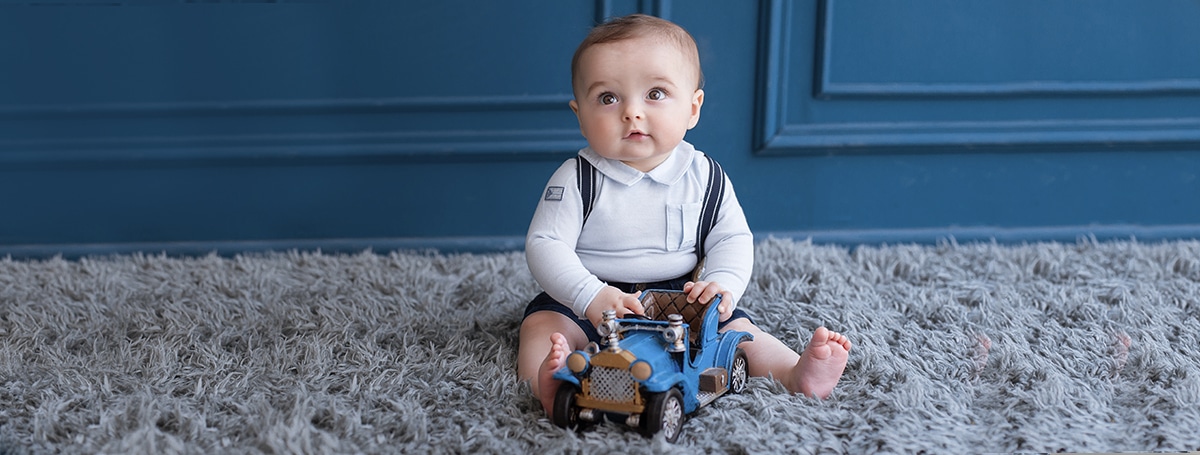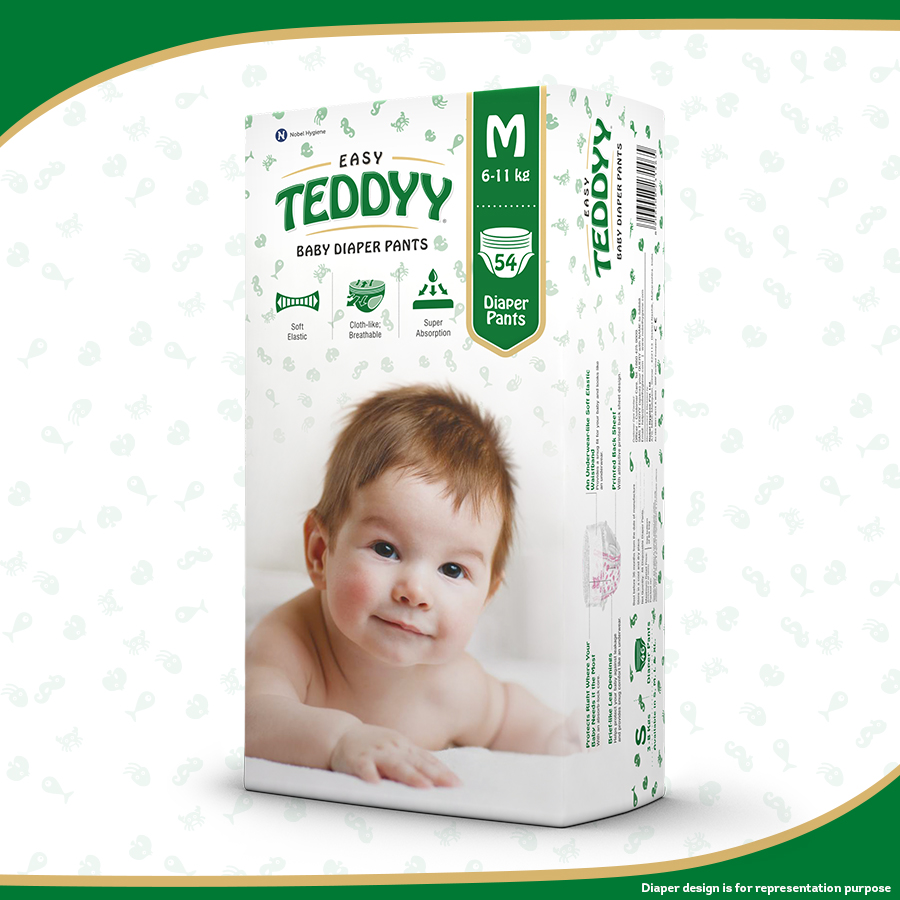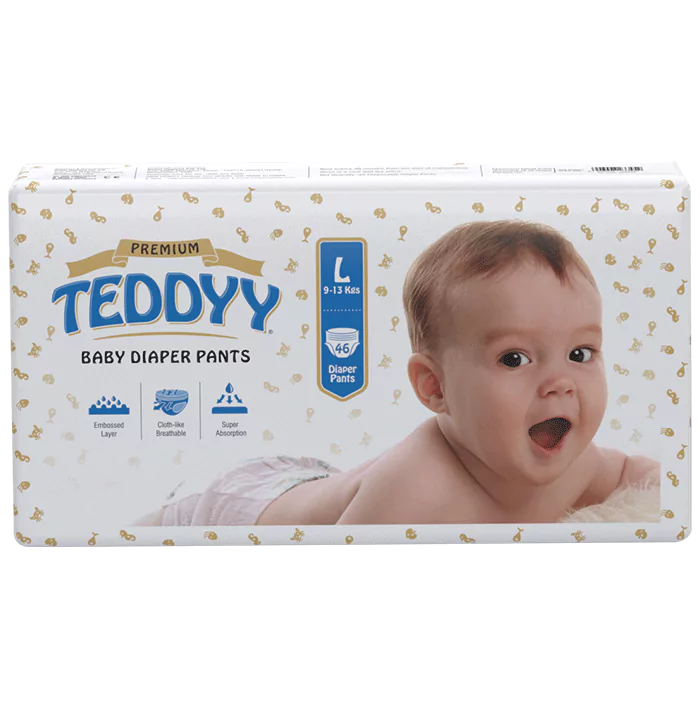9-Month-Old Baby’s Development Milestones: What to Expect and How to Support Growth
The first year of your baby’s life is a whirlwind of changes, and at nine months, your little one is likely showing significant development across various aspects. From rolling over to exploring their environment and communicating in new ways, the 9-month developmental milestones are both exciting and awe-inspiring.
Developmental milestones are tracked at different ages, and many babies reach these milestones at their own pace, so it’s important to remember that every child is unique.
Let’s take a closer look at what to expect from your baby at this stage and how you can support their growth and development.
PHYSICAL DEVELOPMENT MILESTONES
By the time your baby reaches their 9-month mark, you’ll notice some remarkable changes in their physical abilities. At this stage, they are becoming much more active and coordinated.
- Sitting Up: Many 9-month-olds can sit independently without support. They may be able to stay seated for long periods while reaching for toys or engaging in play. Some babies may be able to move between sitting and crawling positions.
- Crawling and Mobility: While not all babies crawl at this age, many begin exploring the world by crawling, scooting, or rolling. Your baby might also start to roll or move in other ways as part of their mobility development. If your baby is already crawling, they may be pulling themselves up to stand, or you may notice them inching closer to furniture to support themselves. Some babies begin standing while holding onto furniture for support. This is a key part of the 9-month baby milestones as they work on strengthening their muscles.
- Hand-Eye Coordination: At 9 months old, babies develop better hand-eye coordination. They can pick up small objects using their fingers and a pincer grip (thumb and forefinger), making it easier for them to grasp and explore toys or finger foods. Some may even be able to pass objects from one hand to another.
Remember, certain milestones, such as crawling or standing, may be reached at different times, and it’s normal for each baby to progress at their own pace.
To support physical development, encourage tummy time to strengthen their muscles, offer baby safe spaces to explore, and provide toys that promote movement, such as crawling tunnels or balls. Keep in mind that each baby develops at their own pace, so don’t be alarmed if your little one takes a little longer to master certain physical skills.
Our Products
COGNITIVE AND EMOTIONAL GROWTH
As babies approach 9 months, their cognitive development begins to blossom. They start to make sense of the world around them, and their understanding of cause and effect becomes more advanced. At this stage, your child is developing new cognitive and emotional skills and actively progressing in their ability to think, feel, and interact.
- Object Permanence: By this stage, babies begin to understand object permanence—the concept that objects continue to exist even when they can’t be seen. For example, when you hide a toy under a blanket, they may try to find it. This is a major milestone in 9-month-old milestones as it reflects their growing cognitive abilities.
- Problem-Solving Skills: Babies at this age are also starting to engage in simple problem-solving. For example, they may try different ways to reach a toy that is out of their reach or explore new ways to interact with a familiar object. They may also enjoy activities like placing blocks into a container and attempting to retrieve them.
- Emotional Development: Your 9-month-old is also learning to express their emotions more clearly. They may develop a stronger attachment to primary caregivers, displaying stranger anxiety when meeting new people. Separation anxiety is also common at this age, as children may become distressed when separated from their caregivers. It’s common for babies at this age to seek comfort from their parents when feeling scared or uncertain. This emotional milestone is part of their overall 9-month baby development.
To nurture cognitive and emotional growth, offer your baby plenty of opportunities to explore different textures, sounds, and toys. Interactive games like peek a boo, which helps stimulate your child’s social and cognitive development by building trust, recognition, and communication skills, and simple cause-and-effect toys, such as musical instruments, can help with their learning and emotional security.
Monitoring your child’s progress and being aware of any concerns is important. If children lose skills they previously had or you notice any developmental concerns, consult a healthcare provider for early screening and support.
LANGUAGE AND COMMUNICATION SKILLS
At 9 months old, your baby’s ability to communicate and understand language is advancing rapidly, although they are still a few months away from speaking their first words.
- Babbling and Sounds: Around 9 months, babies start experimenting with different sounds, including repetitive consonant-vowel combinations like “ba-ba” or “da-da.” At this stage, they may also begin to say simple words like “mama” and imitate other sounds they hear. Making noises and funny sounds is a normal part of their language development, as they babble, copy speech patterns, and use sound to attract your attention.
- Understanding Simple Words: Your baby may begin to understand a few simple words or phrases or their names. They may even respond to familiar voices with excitement or a smile. This stage in language development is crucial for building the foundation for future communication, as babies start to recognize and respond to a variety of other sounds in their environment.
- Non-Verbal Communication: Babies also use body language and gestures to communicate at this stage. Waving bye bye is a common gesture at this age, along with pointing at objects or reaching out to be picked up. These early non-verbal cues are an important part of their growing communication skills.
Encourage language development by speaking to your baby regularly, using simple words, and engaging them in conversation. Talk to your baby often and make funny sounds together to support their language development. Reading books with them, singing songs, and repeating simple phrases can also help your baby begin to understand and use language more effectively.
Our Products
NUTRITIONAL NEEDS AND FEEDING TIPS
By the time your baby reaches 9 months, their nutritional needs are evolving. Proper nutrition during this stage is essential to support your baby’s growth and help them reach important developmental milestones and maintain healthy weight gain. They are still relying on breast milk or formula as their primary source of nutrition but are gradually increasing their intake of solid foods.
- Solid Foods: At this stage, most babies are eating a wider variety of solid foods, such as mashed fruits, vegetables, cereals, and soft proteins like eggs or chicken. Some babies may be ready for finger foods, such as small pieces of soft fruits, cheese, or crackers. These foods help improve their fine motor skills and encourage independence.
With new foods come more frequent and sometimes messier diaper changes.
That’s where Teddyy Baby Diapers come in. With Susu Magnet Technology for long-lasting dryness, a snug & comfy fit, and a breathable design, Teddyy keeps your baby dry and happy while they take on new food adventures.
- Breastfeeding or Formula: Even though they are eating more solids, your baby still needs breast milk or formula to meet their caloric and nutritional needs. Ensure they are getting enough fluids, particularly breast milk or formula, and introduce water in a sippy cup for hydration.
- Allergies and Sensitivities: Be mindful of any potential food allergies, and introduce new foods one at a time to watch for any adverse reactions. Avoid honey, whole nuts, and foods that pose a choking hazard.
To support your baby’s nutritional needs and baby’s growth, provide a variety of healthy foods and avoid forcing them to eat. Let them explore new flavours and textures at their own pace while ensuring their safety during mealtime.
SLEEP PATTERNS AND TIPS FOR BETTER SLEEP
Sleep remains a vital part of your baby’s growth and development, and by 9 months, your baby is likely sleeping for longer stretches during the night, although they may still need some help getting a good night’s rest.
- Sleep Duration: At 9 months, babies typically need between 14 to 15 hours of sleep per day, including naps. They may take two to three naps during the day, depending on their individual sleep needs. Nighttime sleep may range from 10 to 12 hours, with occasional night wakings for comfort or feeding.
- Sleep Environment: To support healthy sleep, create a calm and consistent bedtime routine. A warm bath, reading a short story, or singing a lullaby can signal to your baby that it’s time for bed. Ensure their sleep environment is quiet, dark, and cool, and avoid overstimulation close to bedtime.
- Establishing a Routine: Consistency is key when it comes to sleep. Try to put your baby down for naps and bedtime at the same time each day to help regulate their internal clock. If your baby experiences sleep regression or frequent night wakings, it may be a temporary phase.
By offering a comforting sleep environment and a consistent bedtime routine, you can help your baby get the restful sleep they need for healthy development.
Our Products
CONCLUSION
The 9-month-old stage is an exciting time in your baby’s development. From mastering new physical skills to improving communication and emotional regulation, your baby is growing and learning every day. If you’re currently pregnant or nearing your baby’s arrival, learn what to expect during the ninth month of pregnancy. By understanding the 9-month developmental milestones and providing the right support, you can help them thrive during this exciting period of growth. Always remember that each baby develops at their own pace, so enjoy the journey and celebrate your baby’s unique milestones.
If you are concerned or worried about your baby’s development or if certain milestones are not being met, it’s normal to have some worry. Don’t hesitate to consult a healthcare provider for professional guidance.
Faq's
1. What are the key motor skills a 9-month-old typically develops?
Parents often wonder about mobility—babies at this age generally crawl, creep, pull up to stand, and may even cruise along furniture.
2. How is my baby’s fine motor and cognitive development progressing at 9 months?
At this stage, many infants can transfer objects between hands, use a pincer grasp (thumb and index finger), look for hidden items, play peek‑a‑boo, and understand object permanence.
3. What communication and language milestones should I expect at this age?
Babies often babble (“bababa,” “dadada,” “mamama”), respond to their name, understand simple words like “no,” and begin mimicking gestures like nodding or shaking their head.
4. What are the social and emotional behaviors typical for a 9-month-old baby?
Nine-month-olds usually show affection, exhibit stranger anxiety, prefer familiar caregivers, respond to their name, and enjoy interactive games like peek‑a‑boo.
5. How much should my 9-month-old baby be eating, and what nutrients are essential?
Around this time, babies typically begin eating three solid meals per day, consume around 750–900 calories, and continue adequate breastmilk or formula intake (about 24 oz). Iron-rich foods—like lentils, beans, meat—are especially vital
6. When should I consult a pediatrician if I have concerns about my baby’s development?
It’s wise to talk to your doctor if your baby:
- Can’t sit independently,
- Crawls asymmetrically or drags one side,
- Doesn’t make sounds like “mamama” or respond to their name
- Other red flags include not waving, clapping, pointing, rolling over, or bearing weight on their legs





